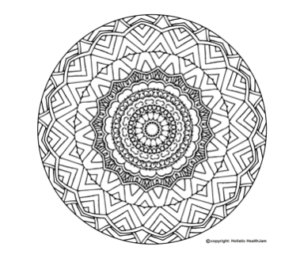Meditation is possibly the most overlooked and misunderstood activity of our age. If there was only one thing that you could do to benefit your overall mental, physical, and spiritual health, it would be meditation. Meditation is a word that draws a lot of mysticism as well as respect. No one is limited from practicing meditation for it holds no requirements. But this still leaves you with the question, why would I want to meditate and how can it benefit me?
What is Meditation?
So what is meditation? It’s hard to define because of the amount baggage the word has picked up over the century. Nowadays, you will hear about hundreds of different types of meditation, techniques, styles, and definitions. But what meditation started as was the observation of one’s own mind. This then evolved into a deeper practice, as all activities do, where the practitioner studied the inner workings of their own mind, thus revealing more of themselves, to their self. From here, meditation grew in various directions but overall resulted in greater awareness of all things.
What are the Origins of Meditation?

The origin of meditation cannot really be traced. Meditation is something that living beings naturally do. People who don’t meditate are just subject to the external influences around them and in today’s busy fast-paced world, these distractions never seem to quit. The thousands of things we choose to deal with in our days constantly nag at us, preventing us from taking the time to sit down and relax without over-thinking or sleeping. But how does meditation differ from thinking or sleeping?
How to Progress in Meditation
Just like everything, there are levels of meditation. The more you practice, or the better you are at it, you will be able to reach these higher levels.
Level One
At the first level of meditation, we are just thinking, but we are aware that we are consciously thinking.
Level Two
Level 2 is when you take a step back (in your mind) and observe your thoughts or “listen” to your mind. The more you practice the longer you can hold this state.

Level Three
At the first level of meditation, we are just thinking, but we are aware that we are consciously thinking. The next level is when you take a step back (in your mind) and observe your thoughts or “listen” to your mind. The more you practice the longer you can hold this state. The third level is when you’re able to quiet your mind and remain with “no thought.” This is difficult and at first, can’t be held for too long, but after practice, you will get better.
These preliminary levels of meditation can benefit you in many ways even though it is only the beginning.
The Deeper Levels of Meditation
It’s difficult to talk about the deeper levels of meditation because it can only be experienced. That is why there is so much mysticism around this art.
Meditation teaches you without the use of your language. The lessons are universal across the globe, and the main lessons cannot be written.
Here is the opening lines (Translated from Chinese) of the Tao Te Ching by Lao Tzu: “The Tao that can be spoken is not the eternal Tao. The name that can be named is not the eternal name. The nameless is the origin of Heaven and Earth. The named is the mother of myriad things.”
What are the Benefits of Meditation?
The greater awareness that meditation provides transfers to everything you do in life.
When people are not aware in a moment, they’re not there to know that they’re not there, therefore masking the distraction reflex.
Meditation Creates Clarity
Meditation helps one to clean up their mind, almost like cleaning your room and allow for better productivity and clearer thought. When you meditate, you’re able to get a broader perspective on your life’s current situation, helping to reveal solutions, opportunities, and help you make better decisions.
Mediation Improves Brain Function
Meditation has also proven to enhance brain performance by increasing one’s focus, concentration, comprehension, mood and overall learning ability.
Meditation Helps to Reach Goals
With regular practice of meditation, you are also able to stay on track with all your goals easier.
It works to help you continue in the direction you actually intend. If you don’t really have many goals or haven’t found your life’s purpose, meditation will help you find that as well.
In meditation, you look deep within yourself unveiling your entire being, thus showing you things about yourself that you may have forgot, revealing your deepest passions.
Mediation and Energy
 Meditation also provides you with energy.
Meditation also provides you with energy.
Monks around the world use many techniques during meditation to cultivate high levels of energy in the body for many different reasons, but these are more advanced levels of meditation.
You can still easily gain energy as a beginner in meditation and you don’t really have to do anything!
Studies show that even just a ten-minute meditation can result in higher energy levels.
Still be weary that meditation reveals the truth, not just the good.
Meditation will point out your flaws as well. Even though it can provide you with energy, it will also tell you if you need sleep. It even points out the things in your life that may be causing you harm, draining your energy, or stunting your growth.
What Does it Take to Meditate?
The fact that meditation simply only requires breathing is interesting because it is so hard for humans of this day and age to do it.
It seems like the easiest thing to do but people soon realize that it may be the hardest thing to do.
Reflecting on the fact that various masters of meditation have been able to meditate hours, days, weeks and even month’s leaves one with an open curiosity of what it can actually do. Once past the preliminary levels, a whole new world of meditation opens with infinite possibilities.
You can learn about techniques of self-healing, energy cultivation, visualization, breathing, cleansing, and even manifestation.
In my humble opinion, if you want to learn more about meditation you have to do it, and not just one session. Do it religiously and work towards a daily practice slowly increasing your time duration.
Sometimes benefits are seen right away but even better benefits seen with consistency, just like any sport or skill. Be patient and you will find what you are looking for.
Meditation is not a destination. We are already here.
Sleeping vs. Meditating
Sleeping is defined as an unconscious relaxation or rejuvenation, while the preliminary levels of meditation is conscious relaxation or rejuvenation.

Unconventional Forms of Meditation
Research has shown that “coloring the symmetrical form of the mandala with its repeating patterns and complexity helps to draw individuals into a state similar to meditation.” Be sure to check out our free mandala meditation coloring pages. Simply print and color.
Be sure to check out our free mandala meditation coloring pages. Simply print and color.
Enjoy this Guided Meditation

